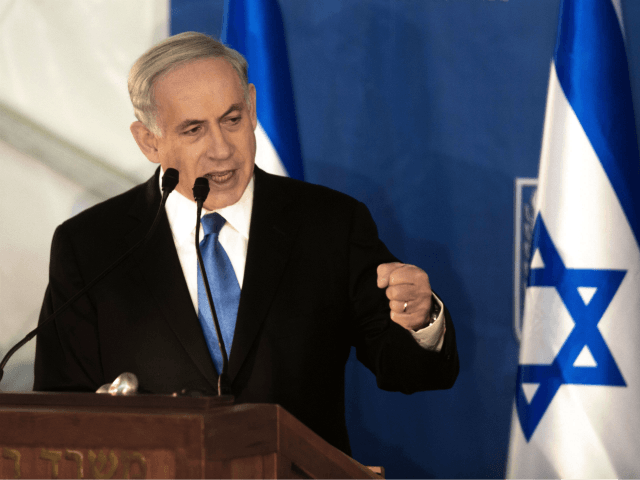Israeli Prime Minister Benjamin Netanyahu said that “several countries” are considering moving their embassies to Jerusalem after President Trump’s decision to recognize the city as the capital of Israel.
“We’re now talking to several countries who are seriously considering saying exactly the same thing as the United States and moving their embassies to Jerusalem,” Netanyahu told CNN on Friday, a day after the United Nations voted to oppose Trump’s move.
Netanyahu said Trump’s decision recognizes a “historical truth.”
“Jerusalem has been the capital of Israel for 3,000 years from the time of King David. It has been the capital of Israel for 70 years, and it’s about time that the U.S. said, and I’m glad they said, ‘This is the capital and we recognize it’ and I think that’s going to be followed by other countries,” he said.
He did not specify which countries he was referring to, “because I want it to succeed,” he said.
Trump’s decision broke with an international consensus that the status of Jerusalem be decided as party of a peace process. Palestinians also consider Jerusalem as their capital, and Palestinian leaders have condemned the decision.
Palestinian Authority President Mahmoud Abbas told French President Emmanuel Macron that the “United States is no longer an honest broker in the peace process.” “We will not accept any plan from the US because of its bias and violation of international law,” he said, according to CNN.
On whether he would be ready to negotiate the future of Jerusalem with the Palestinians, who want their own state, Netanyahu said he was “willing to put my position forward.”
“Our position is Jerusalem remaining a united, safe and secure city, freedom of worship for all faiths which we guarantee and, by the way, in the Middle East, we’re just about the only ones that guarantee this freedom of worship for Jews, Christians and Muslims alike,” he said.
“That’s my vision of Jerusalem. Palestinians may have a different vision. They should come and negotiate. They say they won’t negotiate; they’re walking away from the negotiation table… again,” he said.
“You want peace, go to negotiate peace,” he added.
On whether he would commit to a two-state solution, Netanyahu said he would commit to a “situation where Palestinians can govern themselves,” but said Israel must remain in charge of security in the entire West Bank — which Palestinian leaders have opposed.
“The most important condition that we need for an effective, sustainable peace for both Palestinians and Israelis and for the region is for a situation where Israel has overriding security control of this tiny area,” he said.

COMMENTS
Please let us know if you're having issues with commenting.